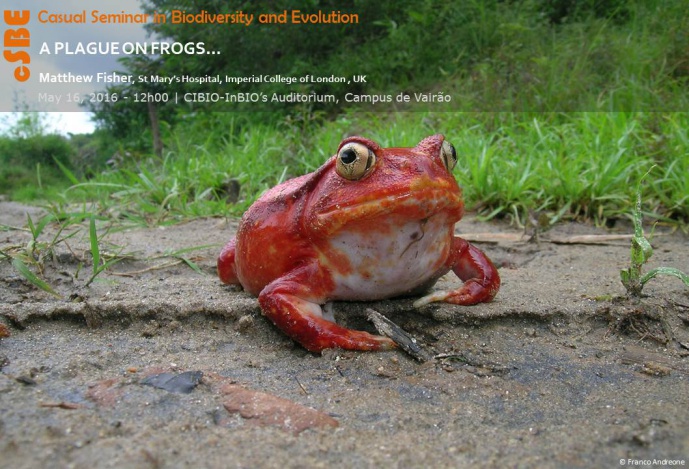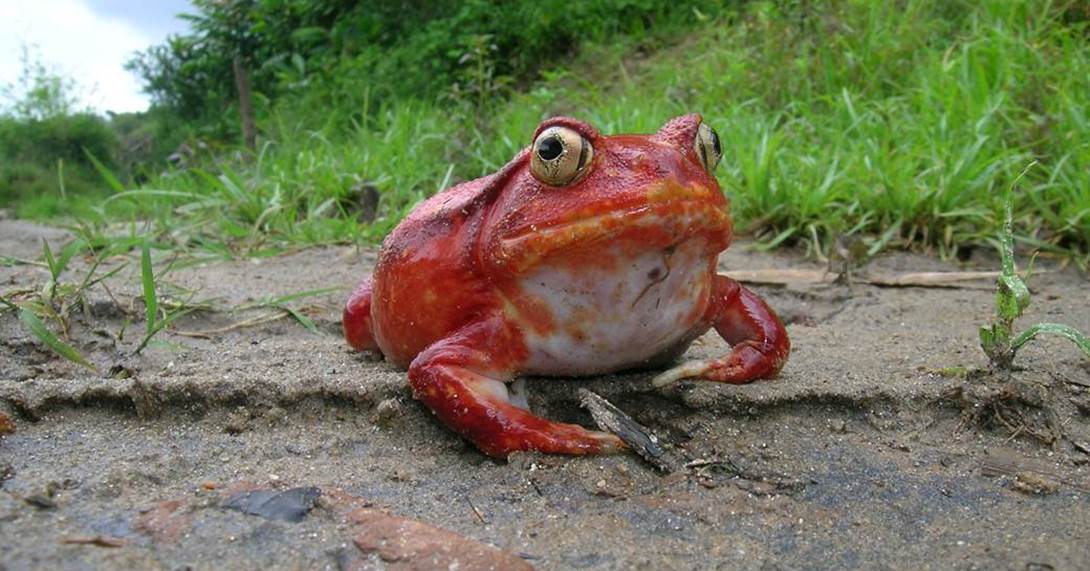A PLAGUE ON FROGS...

CASUAL SEMINAR IN BIODIVERSITY AND EVOLUTION

The Kingdom Fungi is a biodiverse and essential component of our habitable Planet. However, the last 100 years have witnessed an increasing number of virulent emerging pathogenic fungi across ecosystems, with these infections causing the greatest disease-driven losses of biodiversity ever documented. Fungal life-history characteristics, namely high virulence, environmental persistence, broad host-ranges and flexible genomic architecture, predispose this kingdom to emergence as terminal pathogens across susceptible populations of hosts. Anthropogenic activity is a key factor that perturbs natural cycles of infection by increasing long-distance dispersal of inocula and through environmental forcing of infection dynamics. I demonstrate these concepts by analysing patterns and processes across the backdrop of globally-emerging amphibian-parasitising chytrid fungi. Genome sequencing defines ancient amphibian/chytrid associations that are being widely eroded as lineages of these fungi spread. Where divergent lineages of chytrids forge new contacts in nature, hybrids can form with potentially new epidemiologically-relevant traits, or outcompeted chytrids are themselves driven to extinction. Across newly infected regions where outbreaks are occurring, we see varied host population responses ranging from extirpation through to recovery that illustrate complex ecological-modifiers of the host/pathogen interaction. Long term field studies show that climate forces infection dynamics, with regional warming projected to heighten the severity of future outbreaks. These studies argue that ongoing 'fungal pollution' will increasingly cause the attrition of biodiversity unless steps are taken to tighten global biosecurity for this rapidly emerging class of pathogens.
Prof Matthew Fisher works on emerging pathogenic fungi and heads a research group at the Department of Infectious Disease Epidemiology, St Mary's Hospital, Imperial College London. His laboratory combines the use of population and comparative genomics with epidemiological modelling to decipher the evolutionary histories of infectious fungi, to investigate their origins and to predict their future trajectories as pathogens. Prof Fisher's current research interests focus on the drivers underlying contemporary increases in disease-causing fungi and a specific focus includes the panzootic emergence of amphibian chytridiomycosis caused by Batrachochytrium species. His laboratory leverages the power of next-generation sequencing to unlock the evolutionary epidemiology of these pathogens, resulting in recent high-profile publications in Science, Nature, PNAS and PLoS Pathogens. His laboratory is supported by a diverse array of funders including the Wellcome Trust, NERC, BBSRC, MRC, the Leverhulme Trust, BioDiversa and the Morris Animal Foundation.
[Host: Angelica Crottini, Applied Phylogenetics]
Image credits: Franco Andreone